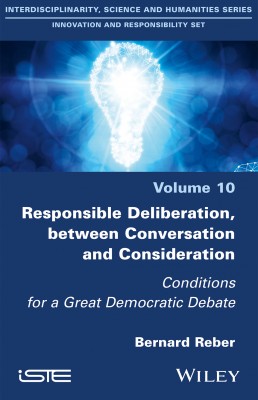
There is no democracy without responsible deliberation. Deliberation is not just a respectful discussion without mutual recognition of individual and institutional responsibilities. This book discusses the theory of deliberative democracy including its philosophical foundations and often faulty translations for empirical work. It analyzes large-scale experiments involving citizens, elected representatives, civil society and experts in great new debates, participating in democratic innovation to face challenges such as the just ecological transition, the Green Deal and the future of Europe.
It responds to the forgotten problems of how we talk to and criticize each other. Deliberation and accountability call for different communicative capacities, not only narration, but also interpretation and argumentation, as well as all the resources of rhetoric, invented to respond to democratic complexity. It also explores two other paths: political conversation and consideration, and allows us to move from distrustful criticism to an “all things considered” judgment.
These communicative resources are deployed in “conversation”, which is conducive to risk-taking, orality and improvisation; in “deliberation”, which deals with disagreements and uncertainties through argumentative enquiry; and in “consideration”, which is attentive to the partners in the discussion and to those that are absent.
Part 1. As Many Critiques As There Are Deliberations.
1. From Defiant Critical Citizenship to Pluralist Political Critique.
2. Multiple and Conflicting Origins of Deliberative Democracy.
Part 2. Disseminated Deliberation between Empirical Analyses and Theoretical Disputes.
3. Deliberation, Argumentation, Multiscale Agreement Modes.
4. More than a “Familial Dispute” at the Foundation of Deliberative Democracy.
Part 3. Embodied Rhetoric and Complex Political System.
5. Argumentation Put Into Question.
6. From Conversation to Consideration.
Bernard Reber is a political and moral philosopher, Research Director at the National Center for Scientific Research (CNRS), and member of the Research Center for Political Research (Cevipof) at Sciences Po, Paris, France. He is a specialist in deliberation studies.